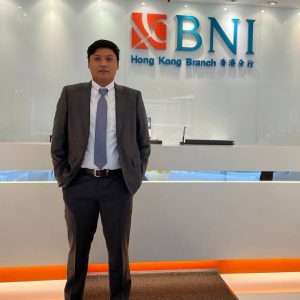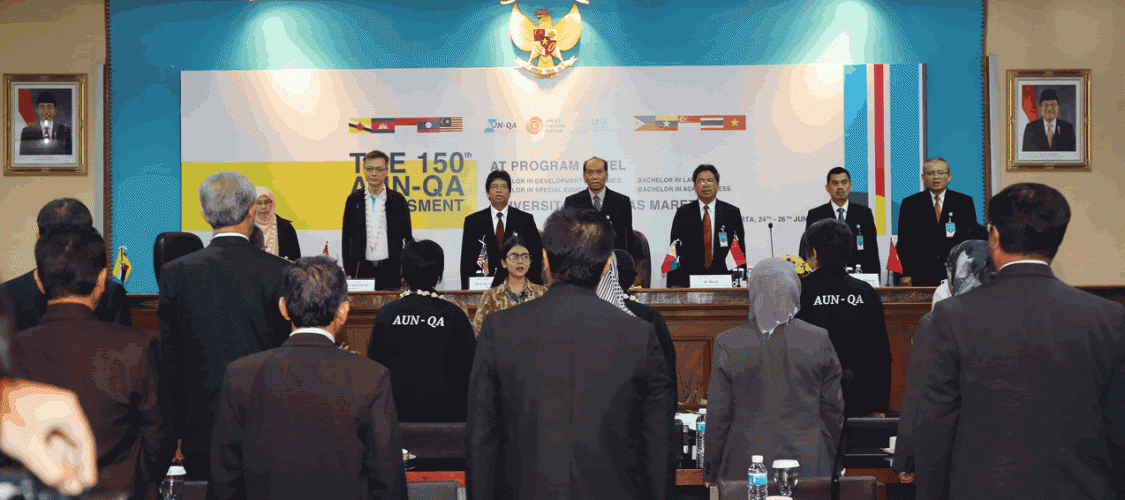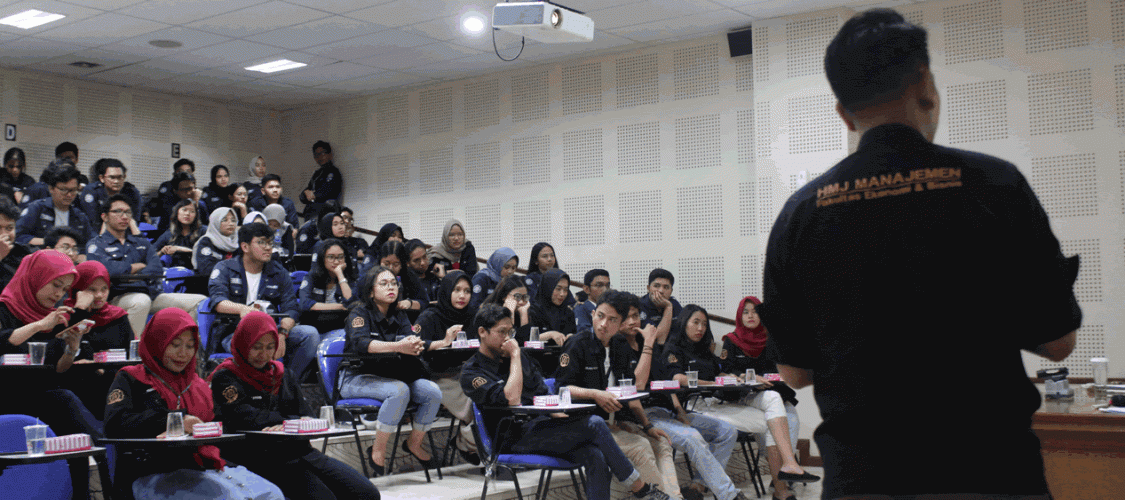Management Profile
Management Project Based Learning
Management Entrepreneurship
 Management Study Program (MSP) is one of the study programs in Universitas Sebelas Maret with excellent national and international recognition. Committed to developing management science, teaching, and research, the study program actively collaborates with the industrial sector in solving business problems and improving innovation in the management field.
Management Study Program (MSP) is one of the study programs in Universitas Sebelas Maret with excellent national and international recognition. Committed to developing management science, teaching, and research, the study program actively collaborates with the industrial sector in solving business problems and improving innovation in the management field.
MSP is also partnering with the government and industry to formulate its curriculum and courses by focusing on industrial revolution 4.0. Student-centered learning is implemented by the Management Study Program to achieve the dynamic intended learning outcomes. The learning method covers case-based learning, problem-based learning, project-based learning, small group discussion, and simulation.
The study program also strives to establish a diverse learning environment within its learning process. This effort aligns with the university’s objective to create an inclusive learning environment as a World Class University. Diversity will allow students to learn about other cultures, tolerance, respect for differences, and how to socialize in a wider academic environment through collaboration with regional and international partner universities.
VISION:
Becoming a high-performance and sustainable Management Study Program at national and international level based on the noble values of national culture.
MISSION:
- Organizing quality education and teaching in the field of management that prepare graduates who are competent and ready to compete nationally and internationally.
- Organizing reputable high quality scientific research in the field of management science at national and international levels.
- Organizing quality community service activities that are oriented towards efforts to empower the community through strengthening culture.
COURSE PLAN OF MANAGEMENT STUDY PROGRAM
FOR THE ACADEMIC YEAR 2020
|
Sem
|
No
|
Course
|
C/E/KM
|
SKS
|
Conventional
|
Kampus Merdeka
|
|||||||
|
PP
|
BP
|
BK
|
BM
|
BPD
|
PK
|
PI
|
AM
|
||||||
|
1
|
1
|
Indonesian Language |
C
|
2
|
2
|
2
|
2
|
2
|
2
|
2
|
2
|
2
|
2
|
|
2
|
Business Introduction |
C
|
3
|
3
|
3
|
3
|
3
|
3
|
3
|
3
|
3
|
3
|
|
|
3
|
Management |
C
|
3
|
3
|
3
|
3
|
3
|
3
|
3
|
3
|
3
|
3
|
|
|
4
|
Organizational Behavior |
C
|
3
|
3 |
3
|
3
|
3
|
3
|
3
|
3
|
3
|
3
|
|
|
5
|
Business Mathematics |
C
|
3
|
3
|
3
|
3
|
3
|
3
|
3
|
3
|
3
|
3
|
|
|
6
|
Introduction to Macro Economics |
C
|
3
|
3
|
3
|
3
|
3
|
3
|
3
|
3
|
3
|
3
|
|
|
7
|
Introduction to Accounting I |
C
|
3
|
3
|
3
|
3
|
3
|
3
|
3
|
3
|
3
|
3
|
|
|
Total Semester 1
|
20
|
20
|
20
|
20
|
20
|
20
|
20
|
20
|
20
|
20
|
|||
|
2
|
8
|
Religion Education |
C
|
2
|
2
|
2
|
2
|
2
|
2
|
2
|
2
|
2
|
2
|
|
9
|
English |
C
|
3
|
3
|
3
|
3
|
3
|
3
|
3
|
3
|
3
|
3
|
|
|
10
|
Business Communication |
C
|
3
|
3
|
3
|
3
|
3
|
3
|
3
|
3
|
3
|
3
|
|
|
11
|
Descriptive Statistics |
C
|
3
|
3
|
3
|
3
|
3
|
3
|
3
|
3
|
3
|
3
|
|
|
12
|
Business Law |
C
|
3
|
3
|
3
|
3
|
3
|
3
|
3
|
3
|
3
|
3
|
|
|
13
|
Introduction to Micro Economics |
C
|
3
|
3
|
3
|
3
|
3
|
3
|
3
|
3
|
3
|
3
|
|
|
14
|
Introduction to Accounting II |
C
|
3
|
3
|
3
|
3
|
3
|
3
|
3
|
3
|
3
|
3
|
|
|
Total Semester 2
|
20
|
20
|
20
|
20
|
20
|
20
|
20
|
20
|
20
|
20
|
|||
|
3
|
15
|
Finance Management I |
C
|
3
|
3
|
3
|
3
|
3
|
3
|
3
|
3
|
3
|
3
|
|
16
|
Marketing Management I |
C
|
3
|
3
|
3
|
3
|
3
|
3
|
3
|
3
|
3
|
3
|
|
|
17
|
Human Resource Management I |
C
|
3
|
3
|
3
|
3
|
3
|
3
|
3
|
3
|
3
|
3
|
|
|
18
|
Operation Management I |
C
|
3
|
3
|
3
|
3
|
3
|
3
|
3
|
3
|
3
|
3
|
|
|
19
|
Inductive Statistics |
C
|
3
|
3
|
3
|
3
|
3
|
3
|
3
|
3
|
3
|
3
|
|
|
20
|
Cost Accounting |
C
|
3
|
3
|
3
|
3
|
3
|
3
|
3
|
3
|
3
|
3
|
|
|
21
|
Information Technology |
C
|
3
|
3
|
3
|
3
|
3
|
3
|
3
|
3
|
3
|
3
|
|
|
22
|
Entrepreneurship |
C
|
3
|
3
|
3
|
3
|
3
|
3
|
3
|
3
|
3
|
3
|
|
|
Total Semester 3
|
22
|
22
|
22
|
22
|
22
|
22
|
22
|
22
|
22
|
22
|
|||
|
4
|
23
|
Research Method in Management |
C
|
3
|
3
|
3
|
3
|
3
|
3
|
3
|
3
|
3
|
3
|
|
24
|
Finance Management II |
C
|
3
|
3
|
3
|
3
|
3
|
3
|
3
|
3
|
3
|
3
|
|
|
25
|
Marketing Management II |
C
|
3
|
3
|
3
|
3
|
3
|
3
|
3
|
3
|
3
|
3
|
|
|
26
|
Human Resource Management II |
C
|
3
|
3
|
3
|
3
|
3
|
3
|
3
|
3
|
3
|
3
|
|
|
27
|
Operation Management II |
C
|
3
|
3
|
3
|
3
|
3
|
3
|
3
|
3
|
3
|
3
|
|
|
28
|
Management Information System |
C
|
3
|
3
|
3
|
3
|
3
|
3
|
3
|
3
|
3
|
3
|
|
|
29
|
Basic Natural Science |
C
|
2
|
2
|
2
|
2
|
2
|
2
|
2
|
2
|
2
|
2
|
|
|
30
|
Civic Education |
C
|
2
|
2
|
2
|
2
|
2
|
2
|
2
|
2
|
2
|
2
|
|
|
Total Semester 4
|
22
|
22
|
22
|
22
|
22
|
22
|
22
|
22
|
22
|
22
|
|||
|
5
|
31
|
Corporate Budgeting |
C
|
3
|
3
|
3
|
3
|
3
|
3
|
3
|
3
|
3
|
3
|
|
32
|
Strategic Management |
C
|
3
|
3
|
3
|
3
|
3
|
3
|
3
|
3
|
3
|
3
|
|
|
33
|
Operation Research |
C
|
3
|
3
|
3
|
3
|
3
|
3
|
3
|
3
|
3
|
3
|
|
|
34
|
Managerial Economics |
C
|
3
|
3
|
3
|
3
|
3
|
3
|
3
|
3
|
3
|
3
|
|
|
35
|
Internship |
C
|
2
|
2
|
2
|
2
|
2
|
2
|
2
|
2
|
2
|
2
|
|
|
36
|
Management Accounting |
C
|
3
|
3
|
3
|
3
|
3
|
3
|
3
|
3
|
3
|
3
|
|
|
37
|
Management for Cooperation and Small Medium Enterprise* |
C
|
3
|
3
|
3
|
3
|
3
|
3
|
3
|
3
|
3
|
3
|
|
|
38
|
Indonesia Economy |
C
|
3
|
3
|
3
|
3
|
3
|
3
|
3
|
3
|
3
|
3
|
|
|
Total Semester 5
|
23
|
23
|
23
|
23
|
23
|
23
|
23
|
23
|
23
|
23
|
|||
|
6
|
39
|
General Elective Course I |
E
|
2
|
2
|
2
|
|||||||
|
40
|
General Elective Course 2 |
E
|
3
|
3
|
3
|
||||||||
|
41
|
Management Practice I (e-Business) |
E
|
1
|
1
|
1
|
||||||||
|
42
|
Management Practice II (Data Analysis) |
CE
|
1
|
1
|
1
|
||||||||
|
43
|
Management Practice III (Tools for Concentration Elective Course) |
CE
|
1
|
1
|
1
|
||||||||
|
44
|
Concentration Elective Course 1 |
CE
|
3
|
3
|
3
|
||||||||
|
45
|
Concentration Elective Course 2 |
CE
|
3
|
3
|
3
|
||||||||
|
46
|
Concentration Elective Course 3 |
CE
|
3
|
3
|
3
|
||||||||
|
47
|
Financial Management III |
CE
|
3
|
3
|
3
|
||||||||
| Human Resource Management III | |||||||||||||
| Marketing Management III | |||||||||||||
| Operation Management III | |||||||||||||
|
48
|
Kampus Merdeka Program – Research |
KM
|
20
|
20
|
|||||||||
| Kampus Merdeka Program – Entrepreneurship |
KM
|
20
|
20
|
||||||||||
| Kampus Merdeka Program – Internship |
KM
|
20
|
20
|
||||||||||
| Kampus Merdeka Program – Village Development Project |
KM
|
20
|
20
|
||||||||||
| Kampus Merdeka Program – Humanity Project |
KM
|
20
|
20
|
||||||||||
| Kampus Merdeka Program -Independent Project |
KM
|
20
|
20
|
||||||||||
|
Kampus Merdeka Program – Teaching Assistant
|
KM
|
20
|
20
|
||||||||||
|
Total without Community Service Program
|
20
|
20
|
20
|
20
|
20
|
20
|
20
|
20
|
20
|
20
|
|||
|
49
|
Community Service Program |
C
|
2
|
2
|
2
|
2
|
2
|
2
|
2
|
2
|
2
|
2
|
|
| Total Semester 6 |
22
|
22
|
22
|
22
|
22
|
22
|
22
|
22
|
22
|
22
|
|||
|
7
|
50
|
Managerial Simulation |
C
|
2
|
2
|
2
|
2
|
2
|
2
|
2
|
2
|
2
|
2
|
|
51
|
Business Feasibility Study |
C
|
3
|
3
|
3
|
3
|
3
|
3
|
3
|
3
|
3
|
3
|
|
|
52
|
Pancasila |
C
|
2
|
2
|
2
|
2
|
2
|
2
|
2
|
2
|
2
|
2
|
|
|
53
|
Banking Management** |
C
|
3
|
3
|
3
|
3
|
3
|
3
|
3
|
3
|
3
|
3
|
|
|
Total Semester 7
|
10
|
10
|
10
|
10
|
10
|
10
|
10
|
10
|
10
|
10
|
|||
|
8
|
54
|
Under Graduate Thesis / Final Report KM |
C
|
6
|
|||||||||
|
Total Semester 8
|
6
|
||||||||||||
|
Total Credits
|
145
|
145
|
145
|
145
|
145
|
145
|
145
|
145
|
145
|
145
|
|||
Keterangan :
PP : Student Exchange
BP : Research
BK : Entrepreneurship
BM : Internship
BPD : Village Development Project
PK : Humanity Project
PI : Independent Project
AM : Teaching Assistant
COURSE DESCRIPTION OF MANAGEMENT STUDY PROGRAM
| No | Course | Course Description |
| 1 | Indonesian Language | The aim of this course is to introduce students to scientific reasoning, especially in building the basic in selecting the right diction, develop effective sentence, develop a paragraph, and planning for scientific writing (paper, final assignment, and thesis). |
| 2 | Business Introduction/Introduction to Business | This course describes business activity in a comprehensive and integrated manner. The materials discussed in this course are the definition of business, its dynamic and development, the environments that affect it, related organization, business functions, and how to manage business activities. Students are expected to understand basic concept of business with all of its related aspects and phenomena. |
| 3 | Management | This course studies the management of organization based on the basic of management functions. The materials studied are the basic concepts of management in managing organization and its development, manager environment, organizational planning, organizing, directing an organization, and controlling an organization. Students are expected to understand the basic of organization management. |
| 4 | Organizational Behavior | This course studies the basic concept and implementation of organizational culture. The materials studied are the assumptions and issues in the external adaptation and internal integration; deepening the assumption in Organizational Behavior; the significance, typology, and survey in Organizational Behavior; the emergence of Organizational Behavior and the leader; the changes in Organizational Behavior and the role of leadership in the changes of Organizational Behavior; as well as Organizational Behavior learning, leadership, and its illustration. Students are expected to be able to understand Organizational Behavior in an organization and how to manage it. |
| 5 | Business Mathematics | This course provides mathematics knowledge and skills for students as the foundation in mastering the competences in business and economics. The materials discussed in this course are the basic concepts of mathematics, mathematic function, algebra calculus, and linear algebra. Students are expected to master the implementation of these concepts in the field of economics and business. |
| 6 | Introduction to Macro Economics | This course discusses about the basic problems in macro economics, national output and income, long-term and short-term problems, aggregate expense and equilibrium output, fiscal policy, supply of money and central bank system. |
| 7 | Introduction to Accounting I | This course discusses about topics in accounting, starting from identify, note, and communicate organization economic activities to stakeholders. This course is basic course which is aimed to introduce accounting as the language of business. |
| 8 | Religion Education | Student are directed to develop attitude that conform with their religiousity. The course are offered for the five major religions in Indonesia, Islam, Christian, Catholic, Hindu, and Budha. |
| 9 | English | This course prepare students with English skills with academic purposes in order to support the process of learning such as to understand reading, writing scientific article, and delivering argument in English. The topics include the grammar, academic writing skill, reading and note taking, and business communication. |
| 10 | Business Communication | Business communication includes various themes related to communication, both oral and written, in business world. Besides the basic principles in communication, the materials also include the process of writing, reporting, and achieving success in communication by utilizing various available communication media, including the introduction to internet and the available facilities. Various preparations to enter work environment is also included as the subject in this course, for example how to prepare application letter, resume, job interview, and business presentation. Along with the rapid globalization, the cross cultural communication becomes one of the topic studied in Business Communication. |
| 11 | Descriptive Statistics | This course learns the basic of descriptive statistic analysis to assist in taking effective business decision. Students are expected to be able to understand the basic and inferential statistic, probability and distribution of probability, sample and sampling distribution, and be able to explain index and time series analysis. |
| 12 | Business Law | In the end of the course, students are expected to be able to explain the aspects of laws that related to business activities. The topics that will be discussed in this course are business contract, laws for corporation, trade, securities, guarantee, bankruptcy, intellectual property, consumer protection, and business dispute. |
| 13 | Introduction to Micro Economics | This course focuses on describing and delivering understanding on micro economic concept soas the student acquire the ability to describe the concept and micro economic implementation in the real life. This course include ten principle of econmics, matket force of supply and demand, elasticity and its applications, cost of production, and the other introduction of micro economics. |
| 14 | Introduction to Accounting II | Students are introduced to the definition of each element in annual report, record transactions, assess the data, and finally communicate the result in a financial report. They will learn to analyze annual report and make simple decision. By the end of the course they will understand the basic theories and skills in accounting and be able to conduct analysis needed to make business decision. |
| 15 | Finance Management I | This course aims to introduce students to financial management concepts. The topics around basic financial management from the introduction to financial management; fundamental concepts in financial management such as time value of money, financial report, tax, and analysis on financial report; up to financial assets management, will be discussed comprehensively. |
| 16 | Marketing Management I | This course discusses one of the management functions in a company, marketing management. Several subjects discussed in this course are basic concepts of marketing management, analysis of marketing opportunities, how to develop marketing management, how to form marketing offer, and how to manage and support marketing program. |
| 17 | Human Resource Management I | This course aims to build students’ understanding on the basic concepts, methods, and techniques in Human Resource Management, with the focus discussion in Human Resource Management functions as business function in strategic decision making process and its implementation. Various functions such as human resource planning, recruitment and selection, training and development, career management, performance assessment, compensation system and employees relation, will be discussed from strategic and technical point of view. |
| 18 | Operation Management I | This course discusses basic concepts in operation management. This course studies management functions in the transformation process from input to generate output in manufacturing and service, in depth. |
| 19 | Inductive Statistics | This advanced statistic course is the continuation from descriptive statistic course. This course will covers inductive statistic materials added with multivariate statistic materials, while non-parametric statistic will also be introduced, however, students have to learn it by themself. As an addition, this course will discuss the use of common software utilized in statistic analysis. |
| 20 | Cost Accounting | This course discusses cost production determination, using cost of production for determining selling price, contract offers consideration, profitability analyzing of various products, measure manager and organization subunit performance and designing appropiate accounting system with production system and distribution system in the organizations. |
| 21 | Information Technology Practice | This course is designed to provide experiences for students in using application softwares needed to complete their study |
| 22 | Entrepreneurship | This course aims to develop student’s interest and willingness to start new business by implementing entrepreneurship principles (independence, creativity, risk taking, and future oriented), and management functions (planning, organizing, directing, and supervising) correctly. |
| 23 | Research Method in Management | This course discusses research method in management and its development, including behavioral research in various managerial fields. The explanation regarding the concepts, variables, and theories used in research, as well as the process that have to be completed in scientific research, will be described in detail with various explanations. In the end of this course, students are expected to be able to prepare research report. |
| 24 | Finance Management II | This course discusses several functions of financial management. Topics around capital structure and leverage, financial planning, and working capital management, and special topics in financial management, such as international management concept,derivative and risk management, mixed financing, and merger, will be delivered comprehensively. Financial management materials are focussed on non-financial companies owned by public or companies listed in capital market. |
| 25 | Marketing Management II | Marketing Management II, in general, talks about the strategy in marketing management and policy taken by marketing manager. Marketing management stategy is a method or mean of decision making in marketing. The main topics discussed in this course are theories and strategy approaches in marketing management, principles and concepts, and development of marketing management. |
| 26 | Human Resource Management II | This course is the development and deepening of Human Resource Management course (HRM) and Organizational Behavior course (OB) offered in the previous semester. HRM II studies the application of theoretical concept from HRM and OB in solving case study. Through case discussion, it is expected that students will be able to develop idea in understanding theoretical concept, practices, and analysis in managing human resource management in an organization. |
| 27 | Operation Management II | This course dicusses about the operation management in a company which covers forecasting, capacity planning, inventory management, aggregate planning, MRP, short term schedulling, project management, lean production, maintenance, and statistic quality control. Besides, this course also prepare students to generate research proposal in operation management field by examining various articles from scientific journal. |
| 28 | Management Information System | This course discusses the topics around the concept of information technology management. Several subjects that will be discussed including: information technology as a mean to achieve competitive advantage in global market, the concept of system and methods in system life cycle, management information system and IT equipment, basic in computer processing, database management, and communication, as well as accounting information system, management information system, and decision support system. |
| 29 | Civic Education | This course aims to develop understanding related to national identity urgency, nation and consitution, Indonesia democracy, and radicalism. |
| 30 | Basic Natural Science | This course focuses on identifying and discussing the universe, biosphere, life cycle processes, ecosystem performance to analyze human behavior related to safeguard and maintain the environment. |
| 31 | Corporate Budgeting | This course discusses the concepts in budgeting, techniques in budgeting, and various forms and types of budgets according to the company needs. Company budget is a complete, integrated, and important tool for planning and controlling profit, for all organization, both profit and non-profit. |
| 32 | Strategic Management | This course discusses thorough planning at company level, among others understanding the concepts and techniques in formulating strategy and the execution of strategy. This sub-material includes the definition and importance of strategy, fundamental concepts and analysis tools, formulation of strategy, and the execution of strategy. Several cases regarding the formulation of strategy for single business enterprise, strategy formulation for diversified company, the execution of strategy and strategic leadership, as well as cases in strategic, ethics, and social responsibility, will be discussed. |
| 33 | Operation Research | This course provides knowledge and skill to apply the approach and mathematics model in business decision making. The materials in this course are: introduction to quantitative method, probability concept and its application, analysis of decision, forecasting, inventory control model, linear programming, transportation and assignment, network models, project management, queueing theory, and the modelling of simulation of statistical quality control. Students are expected to be able to master various forms of quantitative method implementation in business decision making. |
| 34 | Managerial Economics | This course discusses the application of economics theory and analysis tools in decision making to learn how company take optimum managerial decision with the constrains that exists. The materials discussed in this course are, among other, the scope of managerial economics, demand analysis, production and cost analysis, market structure and pricing, risk analysis, and long term investment decision. |
| 35 | Internship | Internship is an intra-curricular activity performed by student in governmental or private institution according to their field of study. Internship is a learning process for students to achieve experience in workplace. This program is expected to complement theoretical knowledge delivered in classes. Thus, students will have wider understanding on management from its implementation in practical world and not limited to theoretical approach. |
| 36 | Management Accounting | This course discusses the use of managerial accounting information (particularly, financial information) for corporate management purposes such as planning, contril, and decision making. Specifically this course discusses (a) cost behavior, (b) V-B-P relationship, (c) balanced scorecard, (d) variable costing, (e) activity-based costing (ABC), (f) relevant cost for decision making, and (g) capital budgeting. |
| 37 | Management for Cooperation and Small Medium Enterprise* | This course aims to provide knowledge and understanding regarding cooperative and SMEs, both theoretically and empirically, as well as from philosophical, conceptual, and managerial aspects. After completing this course, students are expected to be able to recognize, define, go in deep, and apply the concepts of cooperative and SMEs in their daily life to achieve community welfare. |
| 38 | Indonesia Economy | This course provides complementary competency for the student of Faculty Economic and Business in term of analyzing Indonesia economy using various of method and it apply on public policy. The materials include (1) history of Indonesia Economy; (2) system of Indonesia Economy; (3) National income; (4) population and labor in Indonesia; (5) Indonesia Equality and Poverty; (6) Industry and Banking development; (7) outstanding money and inflation; (8) Monetary policy; (9) fiscal and national budget; (10) International trade and balance and payment; (11) agriculture development; (12) Development of community economy and MSME’s |
| 39 | Management Practice I (e-Business) | This course trains students to understand concepts and practices related to online business activities, the ability to apply concepts is the dominant point in this course. The main topics discussed are understanding of e-business, websites and related activities on websites, value chains in online business, business-ethical-and social security. Furthermore, the application of these concepts in field assignments and class assignments. |
| 40 | Management Practice III (Tools for Concentration Elective Course) | This course trains students to solve problems in research using statistical software such as SPSS and SEM AMOS/PLS. The main topics discussed in this course are validity and reliability testing, two samples and multiple samples mean difference test, and testing on complex multivariable relationship. This course focused on the operational skill in the related software. |
| 41 | Community Service Program | Community Service Program is a part of higher education that place student outside the campus so that they can learn to live with the society, to help and to assist the society in explore the potency of human resource and natural resource to solve society’s problems. |
| 42 | Managerial Simulation | This course adopts simulation of managerial role in real working environment as learning design. Students are placed in certain position in a company and run their role in the position, as well as claiming authority in decision making. This course is implemented by cooperating with practitioner from certain industry in assessing students works from the assignments, whether students have finished the duty according to or relevant with the current business practice. |
| 43 | Business Feasibility Study | This course discusses about the process in developing idea, and then cultivate and analyze it into real business. This course focused on the competence in developing an idea, and then followed by the competence to analyze it from marketing aspects, human resource, technical and operation, and other aspects, as well as preparing a report for business feasibility study to support the development of the idea into real business or the embodiment of an idea. This material is focused on the ability to analyze a new idea and the idea to develop a business, both medium size business and small size business. |
| 44 | Pancasila | this course reviews conceptual framework, foundation and the purpose of Pancasila education, Pancasila in the context of country history, Pancasila as the nation foundations, Pancasila as ideology, Pancasila as philosophy system, Pancasila as Ethic system, and Pancasila as the knowledge development paradigm. |
| 45 | Banking Management | This course learns about banking management both theoretical and application. Specifically, this course learns about banking structure, banking financial performance, banking risk management, liquidity, third party fund management, and lending policy. |
| 46 | Under Graduate Thesis / Final Report KM | Thesis or final assignment is scientific work created by students through consultancy process with thesis counselor, written according the rules and norms of scientific paper, based on the result of field study, laboratory, literature review, and or other study that corresponds with the field, as the final requirement to achieve bachelor degree. |
| General Elective Courses | ||
| 47 | Business Ethics | This course discusses about various dimensions of ethics and moral argumentation and business practice. Business ethics is thought or reflection of morality in economics and business. Morality means the aspects of good or bad, praiseworthy or disgraceful, and hence allowed or not allowed from human behavior. The main topic discussed in this course including: theories and approaches of ethics, as well as perspective of ethical principles in business implementation. |
| 48 | Islamic Economics | This course covers the philosophy and basics of Islamic economics. The materials to be delivered in the course are, among others: the history of thoughts in Islamic economics, the application of economics theory from Islamic perspective, sharia financial institution, and various other sharia products. |
| 49 | Econometrics | This course is a tool course that focused on the use of concepts from economics theory, mathematics, and inferential statistics, that are implemented in analyzing of various real economics phenomena. This course will discuss in depth about how to build various model of economics behavior in the form of function and mathematics formula, and econometrics, using empirical data from statistical data to be used in the formulation of econometrics model, and to perform statistical testing to find the precision of model and the behavior among economics variables. |
| 50 | International Business | This course focused on the managerial approach in international business. The discussion in this course covers the basic characteristics of international business and the development of concepts, international environment and its management, national environment, strategy in running business operation in international level, as well as the challenges that appears in the management of international business activities. |
| 51 | Business Consultant Management | This course will provide students with knowledge needed to become professional business consultant. Several materials that will be discussed are the principles and techniques of consultancy to achieve client’s objectives, tools used to solve business problems, how to develop business relationship, and how to provide good business consultancy. |
| 52 | Asset Appraisal Management | This course is elective course for financial management concentration that discusses the concept of valuation for high risk assets. Several material that will be discussed are the types of high risk assets, arbitration, foreign exchange, interest rate, risk and return, and market efficiency. |
| Concentration Elective Courses: Finance | ||
| 53 | Portfolio Theory and Investment Analysis | This course build students’ understanding on the concept of investment, security market, and security trading; portfolio and capital market theory; analysis, valuation, and ordinary shares management; security analysis; analysis, valuation, and management of security with fixed income; derivatives security; and investment management. Through this course students are introduced to capital market research, and case in portfolio and investment field which then analyzed and finished as well as reported with scientific writing format. |
| 54 | Risk Management | This course aims to introduce students to the theory and practice in risk management. The topics around risk management starting from introduction to risk and enterprise risk management, identification and measurement of risk, and cases of risk management in a company/organization will be discussed comprehensively. |
| 55 | International Financial Management | This course build students’ understanding on international financial management, foreign exchange and derivatives markets, foreign exchange risk management, financing the multinational corporation, and foreign investment analysis. Through this course students are introduced to research on multinational companies which then analyzed and finished as well as reported with scientific writing format. |
| 56 | Financial Technology | This course is dedicated to introducing various aspects of fintech to students. Students are given an initial understanding of ‘what is fintech’ and ‘the fundamental change in finance’. Afterward, the course will touch on fintech themes, fintech hubs, fintech solutions, capital, and investment as well as enterprise innovation. Students will also be equipped with an understanding of the social impacts of fintech particularly in emerging markets. Lastly, students will also learn about the regulation, ethics and future of fintech. After completing this course, students are expected to have a better understanding and knowledge about fintech from various aspects. |
| 57 | Derivative | This course learns about derivatives transaction as one of the activities related with investment and financial assets management based on derivatives from main assets used as underlying assets. This course will discuss the concept of derivatives transaction, analysis method and evaluation of transaction, and the strategy and theoretical pricing from assets derivatives. |
| 58 | Financial Information Analysis and Valuation | This course discusses the theory and concept of analysis on financial report. Specifically, this course discusses business activities, analysis on financial report, analysis model for related parties, prediction of bankruptcy, analysis on the effect of inflation, cross-section and time series analysis, analysis for merger, acquisition, and restructuration. |
| 59 | Financial Planning | This course provides description on the basic of financial planning and the function of personal financial planning as an application of conventional financial theory. Through this course students are expected to understand the importance of financial planning, process, and types of financial planning, to the ethical consideration in financial planning. This course is designed to follow the curriculum set by the Certified Financial Planner (CFP) Boards and support students who want to develop a career in financial planning and personal assets management. |
| 60 | Management Practice II (Data Analysis) | The aim of this course is to provide a comprehensive introduction to theoretical and applied issues relating to the global banking industry. The course could be divided into four major topics: (1) Introduction to banking, (2) Central banking and bank regulation, (3) Issues in bank management, and (4) Miscellaneous topics in Banking. |
| 61 | Management Practice III (Stock Market) | This course discussed the main analysis tool that should be understood by an investor before investing in the capital market. The materials in this course are (1) investment in capital market, (2) securities and stock trading mechanism, (3) capital market structure (Indonesia), (4) Securities Ownership Reference (AKSes), (5) Fundamental Analysis, (6) Technical Analysis, and (7) Capital market simulation practice (software used in simulation) |
| Concentration Elective Courses: Marketing | ||
| 62 | Consumer Behavior | This course provides the materials for students in the form of knowledge in consumer behavior, thus when they graduated it is expected that students will have understanding on the concepts of consumer behavior that are useful in building company performance through consumer behavior approach. |
| 63 | Promotion Management | This course discusses about the concepts and techniques in promotion mix, which includes integrated marketing communications process, brand name and logo, review of advertising management, analysis on advertising media, media strategy and assessing the effectiveness of advertisement, supporting media in advertising, sales promotion management and direct marketing, as well as international promotion and advertisement. Through this course, students are introduced to marketing research in the form of presentation and case solving which corresponds to the subject discussed. |
| 64 | Retail Management | This course discusses the basic theories on retail management which in principle is the implementation of integrated management functions, which includes marketing, financial, human resource, and operation function. The materials are presented in four main parts: understanding retail business coverage, developing retail strategy, inventory management, and store management. |
| 65 | Marketing Research | This course discussed about the process in marketing research, starting from the characteristics and research area in marketing, principles and approach in data collection, data analysis, and application of marketing research, especially traditional research and contemporary research in marketing. |
| 66 | Global Marketing | Global marketing is business philosophy developed to achieve business success through the management of marketing activities in global context. Different from conventional marketing point of view, global marketing knows no national boundary as area of business. Thus, analyzing global environment is the first step in preparing strategy, which followed by the analysis on opportunity and constraints in global market, formulation of global market strategy, formulation of program, and its implementation. |
| 67 | Product and Price Marketing | This course provides knowledge and skills for students in developing new products and pricing strategy from marketing point of view. In this course students will learn the how to manage products, new and existing products, and how to develop pricing strategy for both new and existing products. |
| 68 | Management Practice II (Data Analysis – Behavior) | This course trains students to solve issues in research using the SPSS and SEM PLS software. The main topics discussed in this course are the validity and reliability testing, means difference test, regression and complex variables relationship. This course focuses on the operational skill in related software. |
| 69 | Management Practice III (Market Research) | This course trains students to conduct market research that focuses on the use of qualitative method through text mining platform on online community. Students will learn the process of conducting market research, design, method, the use, and reporting of market research results to solve marketing problems. |
| Concentration Elective Courses: Human Resources Management | ||
| 70 | Leadership | This course provides conceptual understanding regarding structure and function of human behavior in an organization. The topics discussed in this course are general understanding of leadership, various theories and approaches in leadership, style of leadership and followership, role of leadership in communication, motivation, decision making; building individual, group, and organizational dynamics; succession of leadership; and conduct changes and organizational development. Besides in local company, this course also discusses leadership from global perspective. |
| 71 | Compensation Management | This course discusses the process of compensation management, measurement of value and relativity of office, evaluation and development of reward process, and performance management. The materials for compensation management is focused on mid-level company and SMEs. As the supporting materials, compensation management for government agencies will also be delivered. Besides these materials, the course also discusses the result of journal article analysis as to support the implementation. |
| 72 | Change Management | This course discusses the basic concept, process, as well as various intervention conducted by consultant in organizational change management. Besides that, this course also discusses about the follow up of implementation, that is connecting vision and changes, strategy to communicate changes, and consolidation of changes. |
| 73 | Organization Culture | This course discusses the the coverage of organizational culture, process of cultural changes, organizational culture change, and organizational performance. The materials of organizational culture course focused on mid-level company, SMEs, and government sector. Besides these materials, the course also discusses the result of journal article analysis as to support the implementation. |
| 74 | International Human Resources Management | This course discusses the context, policy in Human Resource Management in multinational companies, as well as professional and International Human Resource Management department. Policies and practices in International Human Resource Management covers planning functions; staffing; training and development; compensation, allowances and taxes; performance management and safety, health, and crisis management. Professional part and International Human Resource Management department discusses about the position of International Human Resources Management, its role, and its position in the future. |
| 75 | Performance Management | This course provides conceptual knowledge on employee’s performance management in an organization. The focus of this course includes: basic principles in performance management and performance characteristics, performance management cycle, implementation of performance management, performance management effectiveness, performance management development, and evaluation of performance management |
| 76 | Management Practice II (Data Analysis – Behavior) | This course trains students to solve issues in research using the SPSS and SEM PLS software. The main topics discussed in this course are the validity and reliability testing, means difference test, regression and complex variables relationship. This course focuses on the operational skill in related software. |
| 77 | Management Practice III (e-Performance Appraisal) | Human Resource Management Practice Course (E-performance) learns about practices related to Human Resource Management related to performance measurement, especially in government institutions. In detail, this course studies: recognizing performance management, Knowing the Performance Management Process, Knowing Performance Management Practices, Performance Management in government institutions, observing job duties, task classification and details, Task and Detail Analysis, Standardization of Tasks and Details, Job Evaluation, Verification and Data Validation and Performance Calculations. |
| Concentration Elective Courses: Operation Management | ||
| 78 | Quality Management | This course discusses quality management in a company that covers the introduction of quality management in a company, the implementation of quality management in a company, process management, introduction to six sigma, and tools/instruments that usually used to fix quality management in a company. Besides that, this course also teach students to use the tools that usually utilized in quality management. |
| 79 | Supply Chain Management | Supply chain management is scientific and skill course, which discuss the concepts of supply chain management as strategic concept in operation management. This course discusses in depth the integration of all activities regarding the flow of materials and information in the product transformation process through the relationship among suppliers, factory, warehouse, and store to achieve competitive advantage. |
| 80 | Business Modelling | The Business Modeling course aims to equip students to recognize the essence of business decisions and understand the concept of integration that forms a business model in organizations. |
| 81 | Service Operation Management | This course is a part of operation management which discuss the activities of service industries or firms. The material includes: the nature of service, maintaining the balance of service operation, overcoming the bottleneck, creating the service quality, creating service standard, planning, scheduling, and controlling. Moreover it also discusses demand and supply of service for managing demand includes if there is capacity changing. |
| 82 | Project Management | This course specifically focuses on concept and technique of project management include concept and function of project management, project and concept of system, function, planning and controlling process, project budget estimation, resource scheduling network, determining critical path, predicting diagram of evaluation technique and project review, project acceleration, risk analysis, project funding, research topic on project management 1, research topic on project management 2. |
| 83 | Logistic Management | This course provides an understanding of concepts, processes, applications and strategies in managing logistics in the business world, both manufacturing and services. This includes discussing aspects related to logistics such as warehousing, transportation, to the implementation of logistics information systems to accommodate the development of information and communication technology which is growing rapidly at this time. |
| 84 | Management Practice II (Data Analysis) | This course trains students to solve issues in research using the SPSS and SEM PLS software. The main topics discussed in this course are the validity and reliability testing, means difference test, regression and complex variables relationship. This course focuses on the operational skill in related software. |
| 85 | Management Practice III (Decision Making) | Operational Decision Making is designed to equip students with knowledge of business decision-making techniques based on various combinations of quantitative techniques in an Operations Management perspective |
| Concentration Elective Courses: Seminar | ||
| 86 | Finance Management III | This course discusses the current issues in financial management research and how to prepare research plan in financial management. As an addition, the software used in the financial management analysis will be discussed. |
| 87 | Marketing Management III | This course builds students’ understanding on the current issues from research in marketing management, searching for good journal articles, as well as discussing the selected articles. Through this course, it is expected that students will be able to design research proposal which will be developed into final research. |
| 88 | Human Resources Management III | This course discusses research issues in organizational behavior and human resource management, and how to prepare research plan in organizational behavior and human resource management. As an addition, this course will also discusses the use of software which is used in the analysis of human resource management research. |
| 89 | Operation Management III | This course aims to prepare students in formulating thesis proposal in Operation/Strategic Management. This course discusses the research issues in Operation/Strategic and how to prepare research plan. |
| Concentration Elective Courses: Sharia Finance | ||
| 90 | Sharia Financial Management | This course aims to introduce students to the practices of sharia financial management. The topics regarding sharia financial management from the introduction to sharia financial management, fundamental concepts in sharia financial management, up to the application of sharia management will be discussed comprehensively. |
| 91 | Sharia Financial Institutions | This course learns about Sharia Financial Institutions both theoretically and its application. In particular, this course studies the form of sharia financial institutions, especially those that develop in Indonesia as well as operational aspects in it |
| 92 | Sharia Banking | This course is an elective course that aims to build student’s understanding on the theories and practices in sharia banking. Several materials that will be discussed in this course are Islam and sharia banking, interest vs usury, basic principle of sharia banking, and supporting aspects of sharia banking, as well as the development of sharia banking in various countries. |
| 93 | Management Practice II (Data Analysis – Behavior) | This course trains students to solve issues in research using the SPSS and SEM PLS software. The main topics discussed in this course are the validity and reliability testing, means difference test, regression and complex variables relationship. This course focuses on the operational skill in related software. |
| 94 | Management Practice III (Stock Market) | This course discussed the main analysis tool that should be understood by an investor before investing in the capital market. The materials in this course are (1) investment in capital market, (2) securities and stock trading mechanism, (3) capital market structure (Indonesia), (4) Securities Ownership Reference (AKSes), (5) Fundamental Analysis, (6) Technical Analysis, and (7) Capital market simulation practice (software used in simulation) |
last updated on (01/03/2023)
Excellence:
Bachelor in Management Study Program maintain high quality academic atmosphere and learning activities by implementing national and international quality standard, according to the national and international accreditation and certification provided by the BAN-PT (National accreditation with ‘A’ standard), AUN QA certification, and AACSB member. The study program also hosted various academic activities at the international and national levels such as international conference and national seminar. The program is supported by excellent academic staff, who actively publish their research article in reputable journals and receiving prestigious international level grant (ERASMUS +).

Bachelor in Management Study Program Is committed to support the implementation of the ‘Kampus Merdeka Program’ initiated by the Ministry of Education and Culture (Kemendikbud) in 2020. The Kampus Merdeka curriculum offers numerous programs such as Research, Entrepreneurship, Village Development Program, and Humanity Project. The RPMB-KM Research Program is organized in collaboration with the study program partner institution that contribute to the development of the Bachelor in Management Study Program. The partner institutions are, among other, the Central Bank of Indonesia (BI), Financial Service Authority (OJK), Indonesia Deposit Insurance Corporation (IDIC), Bank Rakyat Indonesia, Bank Negara Indonesia, and numerous prominent companies in Indonesia.
Additionally, the Bachelor in Management Study Program FEB UNS is actively conducting student exchange with other national and global universities each year. Students participating in student exchange program get the opportunity to attend several courses provided by host university.

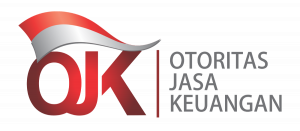
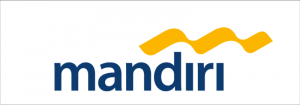

Partnership
Partnership with Industries in Indonesia: National Land Agency, Indonesia Deposit Insurance Corporation (IDIC), Indonesia Financial Service Authority (OJK), Bank Indonesia, PT. Bank Mandiri, PT. Bank BNI, PT. Angkasa Pura, PT. Bank BTN, PT. Sinar Sosro, PT. Bank Danamon, JNE, PT. Telkomsel, Azana Hotel Group, and ADIS Group
International Partnership: Purdue University USA, University of Twente Netherlands, University of Limoges France, University of Portsmouth UK, National Yunlin University of Science and Technology Taiwan, Universiti Putra Malaysia, and Universiti Malaysia Sarawak (UNIMAS).

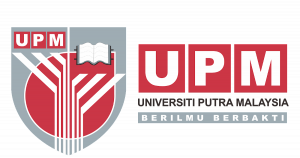
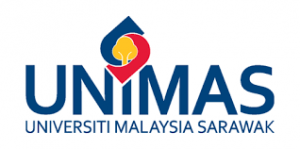



Accreditation and Ranking
The study program is accredited by BAN PT with ‘A’ predicate and a total score of 376 dated 21 November 2018, according to BAN-PT Decree No 3108/SK/BAN-PT/Akred/S/X/2018 regarding the Assessment Score and Ranking for Bachelor Study Program Accreditation. The Study Program is Certified by the AUN-QA in 2018.
Management Student Association (HMJM) is a student activity unit at study program level providing a space for the MSP students to expand their organizational skill, supporting the study program activities, and disseminating public information regarding the study program. The dissemination was made through the social media, which shows the students activities and all information (including academic and non-academic information) provided by the study program.
The HMJM has several recurring events such as Management Carnival that focus on the students’ academic skill development through SMBCC (Sebelas Maret Business Case Competition) and Management Talkshow inviting reputable speakers in Indonesia to share insights and experiences, especially in personal branding and business development.
Graduates’ Profile
The achievements of graduates’ learning outcomes and the MSP ILO will prepare the graduates to have competencies for working in industrial sector, research, and entrepreneurship.
- Mastering the concept of management to implement the management functions (planning, organizing, directing, and monitoring) in various organizations (business and non-business organization).
- Having the competency to implement the concept and analysis technique in management science (strategic management, financial management, marketing management, human resource management, and operation management).
- Capable to identify managerial problems and taking appropriate decision to solve them.
- Responsible in their duty by implementing business ethics and entrepreneurship principles (independence, creativity, risk-taking, future oriented).
| Graduate profile | Description of Graduate Profile | Job Prospect |
| Manager | Experienced personnel with the knowledge and skills, acknowledged by an organization to lead, manage, control, regulate, and develop the organization in order to achieve its goals. | Financial/risk analyst, personal banking officer, relationship manager, sales/marketing executive, supervisor/assistant manager in manufacturing, service, and retail businesses |
| Entrepreneurs | A person who can see market opportunities to establish a new market equilibrium, while taking advantage of the ensuing change | Entrepreneurs |
| Management Consultant | A professional who provides consulting services in managerial field regarding to their management expertise. | Business Consultant |
| Researcher | An expert in performing research activity using a certain system in acquiring knowledge or an individual who carries out a number of practices that associated with educational, study, or philosophical activities. | Researchers or research assistants in research institutes, professional institutions, government institutions, and companies, at national and international levels |
| Academicians | Someone who is highly educated, or intellectual, or someone who pursues the profession as a teacher and professor at a university | University Lecturer |
Alumni:
Dewanti Cahyaningsih (Class of 2012)- went to Universite de Limoges for her PhD
Choosing the Bachelor Program in Management FEB UNS as my first choice, back then, became one of my best decisions. The curriculum offered and excellent faculty members become the best combination to prepare the students to enter the job market or pursuing further study. As one of the most active study program, the established partnership and collaboration with industrial and academic sector, exposes students to broaden their perspective and open the career opportunities as well as academic opportunities, long before graduation. Not only helping us to grow academically, the encouragement to stay active in both in academic and non-academic activities also help us to enhance our competency, which brings me to my Doctoral study.
Muhammad Ridho Reza Pahlevi (Class of 2010) Representative for Remittance Business Development & Networking in Hong Kong – PT Bank Negara Indonesia, Tbk
The Bachelor Program in Management FEB UNS always strive to provide the best experiences for the students both in hard-skill and soft-skill, adding insight as preparation for the job market. The rich experiences and extensive program prepares students to be a competitive alumni to accomplish career success.
Accreditation and Certification
Quality Assurance in PSM
PSM is audited by internal and external quality assurance institutions. The study program carries out continuous improvements based on the suggestions from the quality assurance team. Improvements implementation is reported to the responsible unit (UPM).
PSM Quality Assurance is also conducted by considering suggestions from alumni and graduates’ employers. A Focus Group Discussion (FGD) was conducted on Saturday, 28 August 2021, shows that the study program need to enhance graduates’ soft skill, such as self confidence and communication skills. Responding to those suggestions, the study program carries out an improvement in learning method by increasing the involvement of guest lectures, both guest lecture from practitioners and international experts.
Recent News
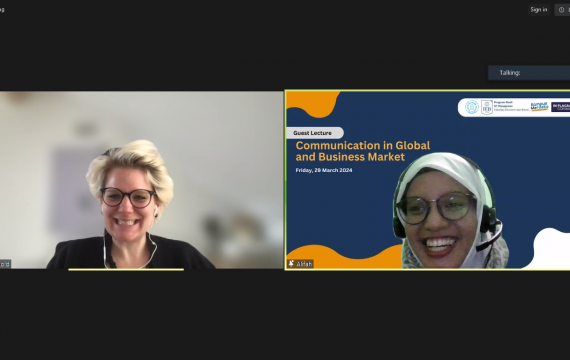
Undang Praktisi dari Eropa, Prodi S-1 Manajemen Hadirkan Guest lecture Business Communication and Marketing
Program Studi S-1 Manajemen Fakultas Ekonomi dan Bisnis (FEB) Universitas Sebelas
Read More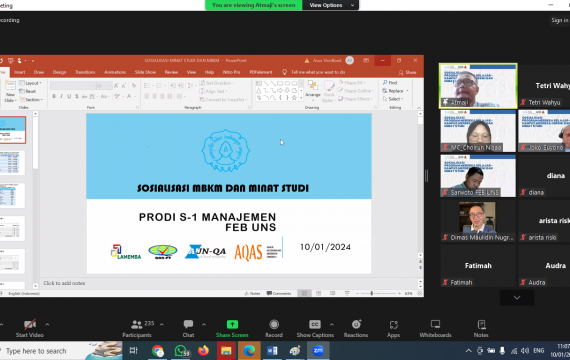
Lebih dari 200 Mahasiswa Ikuti Sosialisasi MBKM yang Digelar Prodi S-1 Manajemen
Program Studi S-1 Manajemen Fakultas Ekonomi dan Bisnis (FEB) Universitas Sebelas
Read More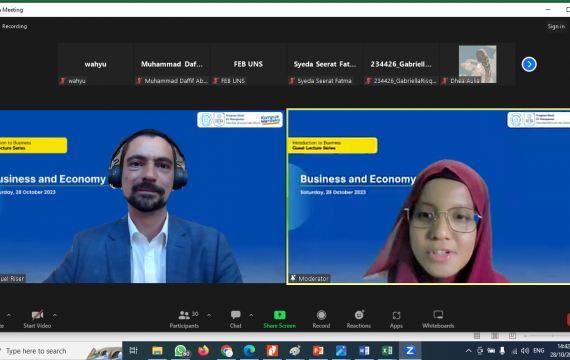
Agenda Guest Lecture Prodi S1 Manajemen Kenalkan Kondisi Bisnis di Eropa
Program Studi (Prodi) S1 Manajemen, Fakultas Ekonomi dan Bisnis (FEB), Universitas
Read More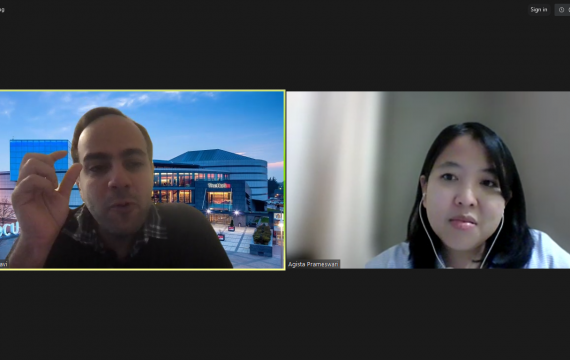
Prodi S1 Manajemen Angkat Materi Risiko Keuangan dalam Guest Lecture Basic Financial Management
Keputusan investasi keuangan tidak lepas dari perhitungan tingkat suku bunga, risiko,
Read More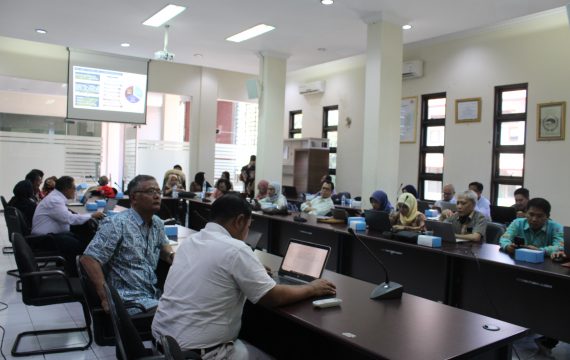
Program Studi S-1 Manajemen adakan Pra Lokakarya Kurikulum
Prodi S1 Manajemen Adakan Pra Lokakarya Kurikulum, Kamis 5 Oktober 2023 di Ruang
Read More
Fun Talk Management Carnival 2023, Kenali dan Sayangi Diri Sendiri
Fun Talk Management Carnival 2023 yang dihelat oleh Mahasiswa Prodi S1 Manajemen
Read MoreContact
Email : s1manajemen@unit.uns.ac.id


